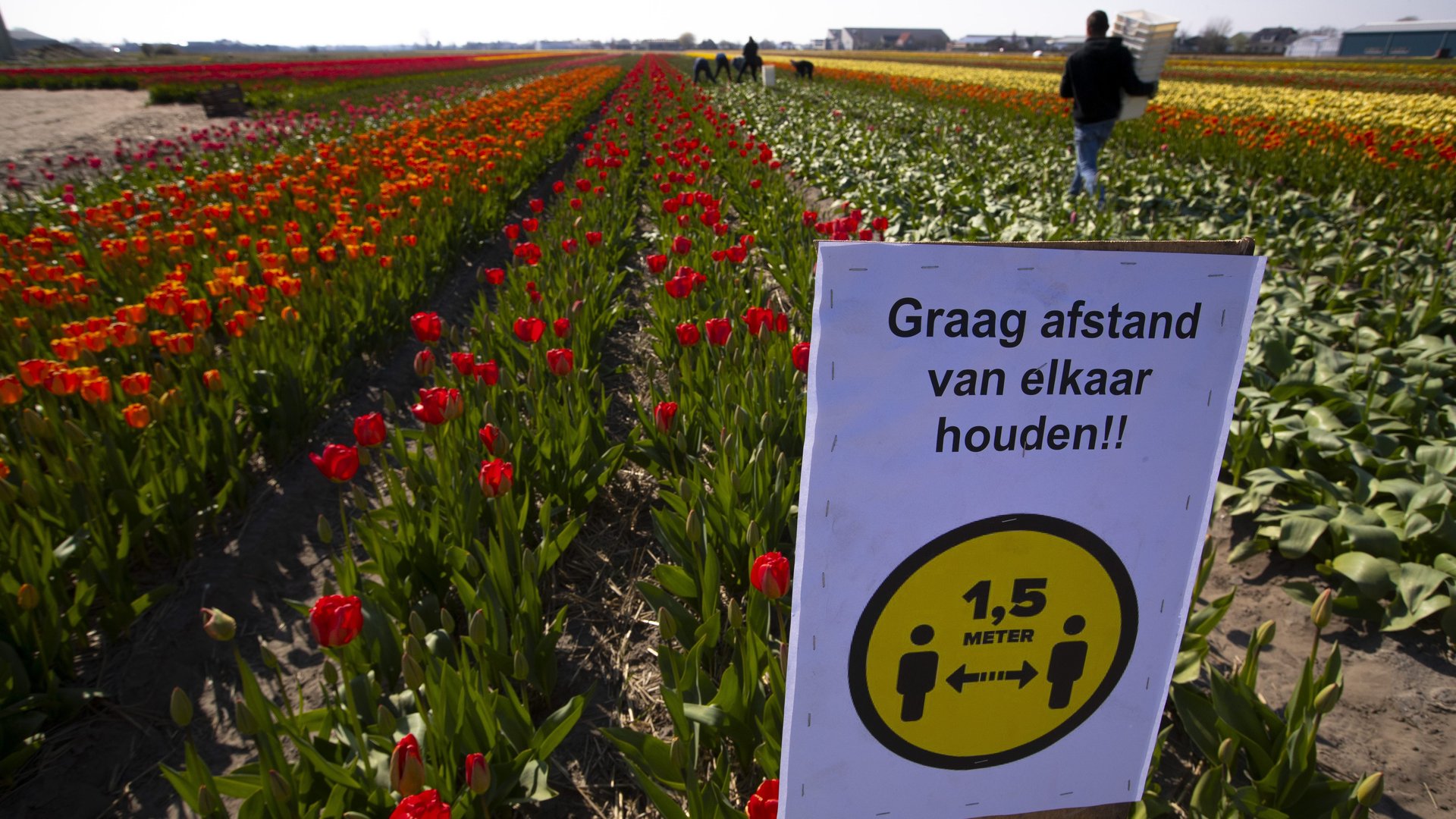A global flower industry crippled by Covid-19 is bracing for Mother’s Day
In most countries around the world, Mother’s Day is celebrated on the second Sunday in May. With time running out to organize the logistics of gifting during a year in which Covid-19 has reshaped public life, the task may require some extra creativity.


In most countries around the world, Mother’s Day is celebrated on the second Sunday in May. With time running out to organize the logistics of gifting during a year in which Covid-19 has reshaped public life, the task may require some extra creativity.
Because of a wilting global flower industry, people who might normally order mom a bouquet may just have to come up with another option. At a macro level, the global flower industry can be divided into two categories: the importers and the exporters. And the virus is wreaking havoc on both.
Among the exporters are the world’s top flower growers, the Netherlands and Colombia. Together they account for some $5.5 billion of the industry’s $9 billion global value. They have also suffered in significant ways as the novel coronavirus has swept across the world, shutting down economies and ushering people into self-isolation to combat its spread.
In the last two months in the Netherlands, floriculturists have destroyed more than 400 million flowers as demand plummeted, including some 140 million tulips. It’s a significant loss for a country responsible for about half the world’s flower trade. The timing couldn’t be worse: At 60% of total annual sales, the first half of the year—which includes Valentine’s Day and Mother’s Day—accounts for the majority of business for the industry.
The Colombian flower market was also hit hard. Under normal circumstances, about 90% of its annual production winds up being exported. But the US Department of Agriculture’s Foreign Agricultural Service in April reported that flower sales for the country are down by 80%.
“Currently, there is no demand for flowers in Europe and many customers in the United States have cancelled their purchase orders for the upcoming Mother’s Day Holiday,” the report says (pdf). “It is also highly dependent on the global airline industry to move its product every day. With no international passenger flights flying between Colombia and the United States, there are very few cost-effective options for shipping flowers, even if there was demand.”
The lagging flower industry exports will have an outsized impact in some countries. In Kenya, East Africa’s richest economy, flower exports represent one of the top three foreign exchange earners, according to Reuters. With global demand sagging, flower farms and companies are having to lay people off.
In import markets, a different story is playing out. The US tops that list, typically importing some $1.5 billion in flowers annually.
But florists across the country are selling fewer flowers for a variety of reasons. In many states, their businesses aren’t open because they aren’t considered an essential business. Then consider the practical results of social distancing and self-isolation: With fewer birthday parties, weddings, and big events, flower orders are down. According to an April 30 analyst report at Credit Suisse, flower orders are also down because people are avoiding large funeral services.
In California, chain grocery stores were among the first businesses to cancel flower orders from domestic and foreign farms. In South Carolina, florists have reported they aren’t getting the varieties of flowers they been accustomed to working with, which means many custom-order bouquets are impossible to create.
And it’s not just real flowers that have taken a hit. Covid-19 has even made life difficult for the sellers of artificial blooms. Because the operation of production factories in southern China have been impacted by the virus, the world supply of fake flowers is also experiencing a crunch. All to say, when it comes to celebrating mom this year, in lieu of flowers, many people may have to find another way to say “I love you.”